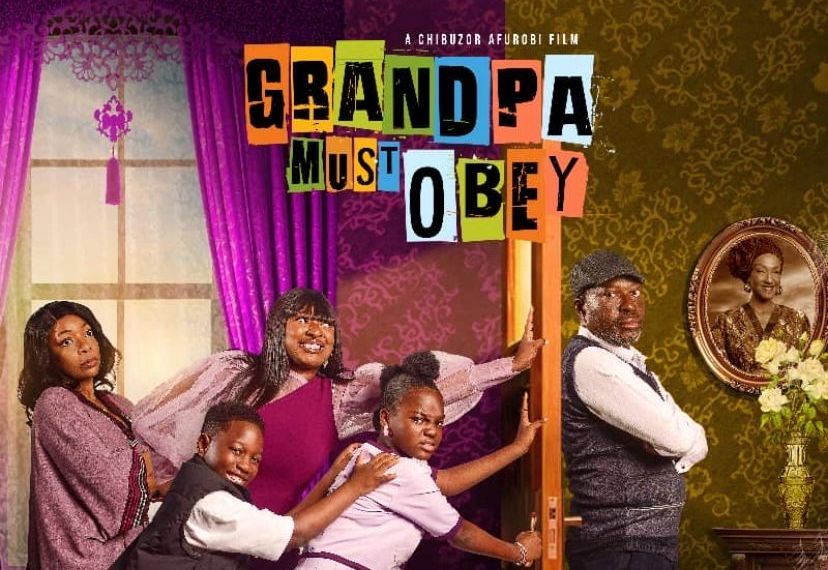In a significant move set to redefine the landscape of gospel music recognition in Africa, the Kingdom Achievers Awards (KAA)—widely regarded as one of the continent’s most influential Christian music honours—has announced a major revamp for its upcoming fourth edition. Now entering its next chapter, KAA will move away from traditional public voting and embrace a new, professionally curated nomination and selection process through the Kingdom Achievers Recording Academy (KARA).
This landmark change was revealed in an official statement released on KAA’s verified social media platforms, sparking widespread discussion among gospel artistes, fans, and industry stakeholders throughout Nigeria, Ghana, and the larger African Christian creative community. Observers note that the shift underscores the awards’ growing ambition to set a new gold standard for transparency, credibility, and artistic excellence on the continent.
From Crowd Votes to Expert Panels: Why the Change?
For years, the KAA operated using a popular voting model, inviting fans across Africa and the diaspora to vote for their favourite gospel artists and creatives. While this approach fostered community engagement and excitement, organisers reported growing concern about the limitations of popularity-based voting. There have been ongoing debates around vote rigging, regional imbalances, and the risk of overshadowing less famous but highly influential creatives.
Sam Adejo, the convener of KAA, explained in a recent media interview that KARA has been established “to elevate the award process and ensure that nominations, evaluations, and final recognitions are handled with the highest standards of fairness and integrity.” He emphasised that this major transition marks a new milestone for the awards, reaffirming KAA’s central mission to honour Christian creatives in ways that truly reflect the depth and diversity of the continent’s talent. “We believe this innovation paves the way for greater excellence, trust, and respect for the achievements of gospel creatives, not only in Nigeria and Ghana, but across Africa,” Adejo stated.
The 2023 Edition: Milestones and Memorable Moments
Last year’s ceremony, held at the iconic MUSON Centre in Lagos, saw more than thirty categories celebrated, ranging from established music icons to emerging voices. Standout winners included Moses Bliss—whose uplifting anthems have resonated across churches and radio stations—alongside Mercy Chinwo, Veeke James, and Dr Stephen Akintayo. Those familiar with the Nigerian and Ghanaian gospel scenes lauded the diverse representation, noting that the award has become an aspirational marker for up-and-coming creative talents throughout the region.
For many, the KAA represents more than an annual celebration. “The recognition can be a career-changing moment,” explained gospel singer and past nominee, Chinyere Emmanuel, in an interview following the 2023 edition. “It brings more visibility, opens doors for collaborations, and even draws international attention to our unique sound.”
KARA: The Recording Academy Model Arrives in Africa
Mirroring established global industry practices, the Kingdom Achievers Recording Academy will operate as an independent, expert body responsible for all stages of the award process—from receiving submissions and verifying eligibility, to overseeing nomination ballots and selecting final winners. According to organisers, KARA will comprise respected producers, lyricists, veteran gospel artists, and leading industry professionals from Nigeria, Ghana, South Africa, and beyond. This ensures that judgments are anchored in artistic merit, technical skill, and impact, rather than popularity alone.
A Lagos-based music reviewer, Nkem Olukoya, commented: “Nigerian creatives have long called for fairer, more professional award models. This pivot by KAA aligns with ongoing reforms in other sectors; it might just be the template for future events across our creative industries.”
The Bigger Picture: Gospel Awards and Africa’s Creative Economy
Over the past decade, gospel music—and Christian creative arts more broadly—have assumed a new level of importance across West Africa. In Nigeria alone, the genre’s growth mirrors the boom in faith-based concerts, digital church platforms, and global streaming. According to recent industry data, Nigerian gospel exports now reach audiences as far as the US, UK, and the Caribbean, with local acts securing international collaborations and chart placements.
Industry watchers argue that awards like KAA serve as both motivator and benchmark. “Africa’s creative economy thrives when we invest in structures of accountability and excellence,” noted Temi Adebayo, a Ghanaian music promoter. “Musicians, writers, and visual artists are inspired to push boundaries when their work is recognised by credible institutions.”
Setting the Stage: November’s Anticipated Fourth Edition
The fourth edition of KAA is scheduled for November 9th at the MUSON Centre, Lagos—a venue renowned for hosting some of Nigeria’s most prestigious music and performing arts events. Organisers promise this year’s show will raise the bar, with updates in stage design, multimedia production, and a broader lineup of presenters representing different regional and denominational backgrounds.
Already, anticipation runs high in fan clubs, churches, and creative hubs from Abuja to Accra. Social media platforms buzz with speculation over possible nominees and predictions about breakout new artists who may finally get their spotlight through the Academy’s more inclusive approach. Diaspora communities are also expected to tune in, continuing the tradition of cross-border gospel celebration that KAA has cultivated in recent years.
Community Voices: Reactions from Across Nigeria and Africa
The news of KAA’s shift has sparked a wave of responses. While most praise the emphasis on meritocracy and expert curation, some fans express nostalgia for the days when public voting determined the winners. “I hope the Academy listens to our voices even though we’re not voting directly anymore,” remarked Bayo Omotayo, a gospel music enthusiast in Ibadan. “Let’s just pray this change brings more unity and creativity, not division.”
Meanwhile, industry insiders call for proper communication and transparency to maintain trust. “Clear guidelines and public updates will be key,” said Adeola Mensah, an A&R consultant based in Accra. “If KARA can deliver on its promises, Africa’s creative awards scene will never be the same.”
Looking Ahead: Will the New Model Set a Pan-African Precedent?
As the countdown to the November event continues, all eyes are on KAA and KARA to see if this bold experiment not only raises the profile of gospel artists but also inspires similar reforms in other entertainment sectors—from Nollywood to Afrobeats. With the enduring popularity of gospel music in Nigerian and Ghanaian society, and the global appetite for African creativity rising fast, positive outcomes could ripple far beyond one awards ceremony, sparking broader transformation in how African talent is recognised and nurtured.
Are you looking forward to the changes at this year’s Kingdom Achievers Awards? Do you prefer live public voting or expert academy decisions when it comes to honouring creative talent? Share your thoughts in the comments below, and don’t forget to follow us for exclusive coverage of the KAA and the latest in African entertainment!
For feedback or general support, contact us at support@nowahalazone.com.
Stay connected for more Nigerian and African entertainment updates! Follow us on
Facebook,
X (Twitter), and
Instagram.










